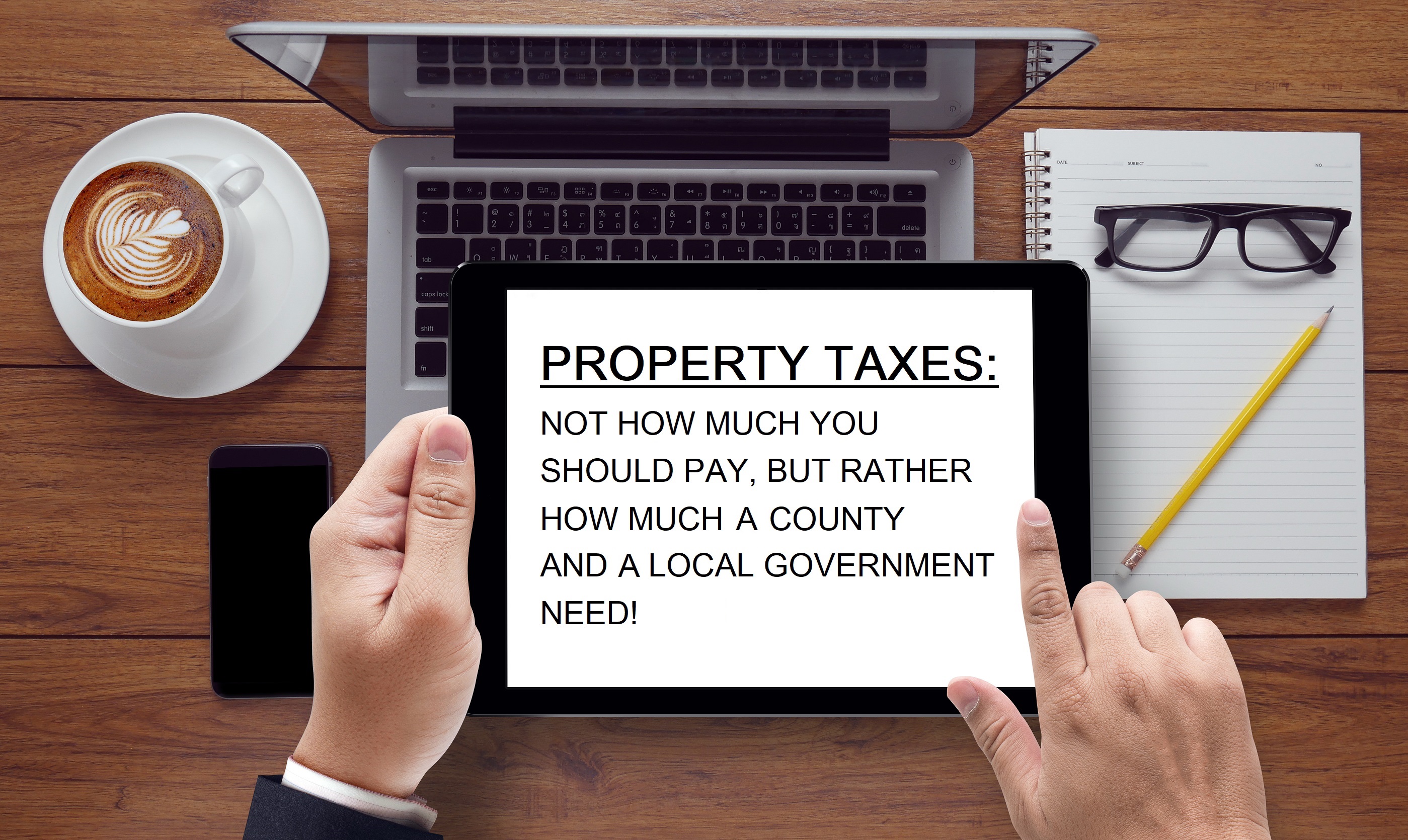Important Property Tax Concepts
When you become a homeowner, one of the responsibilities you take on is paying your property taxes. Property taxes can be confusing and difficult to understand, especially for first-time homebuyers. Here, I will break down and simplify the property tax process in Illinois, and important concepts you should know about when filing for your property tax exemptions.
What Are Property Taxes?
Property taxes are a local tax that is assessed by the county property is located in. Revenues that are collected from these taxes are spent at the local level to pay for schools, local government, police, and other services. The county property is in is responsible for issuing guidelines, determining the county’s equalization factor, approving exemptions, and providing assessment training to local assessing officials. Real estate is considered “real property,” and owners of real property must pay property taxes. Personal property is not taxable, so there is no need to worry about that when filing for your property taxes.
How Does the Taxing Process Work?
The county assessor uses 3 different methods to review and assign a market value to all sold and unsold properties in a neighborhood. Adjustments are made for disparities when comparing the building characteristics, thereby accounting for differences (like age, quality of construction, size, etc.) between properties. Any necessary final adjustments are then made to ensure a fair and uniform assessment of all residential properties. During this assessment period, a property is “discovered, listed, and appraised” so that the market value of a property can be determined. The market value that is determined by January 1st of any given year is the market value property will be assigned to for the next re-assessment period. Remember, you can always appeal your property taxes if you think there has been an error in assessing your property.
How Property Taxes Are Calculated
Your property’s total tax bill amount is calculated as a product of three factors: first, the total property assessment, set by the county assessor, second, the state equalization factor, set by your state or county, and third, a local tax rate, set by your school district, city, and township. Tax rates and state equalization factor tables are published by the county clerk every year, whereas total property assessment can be found on the county assessor’s website. For instance, if the total assessment of a property in Cook County is $100,000, the equalization factor is 2.9101 and the tax rate is 8.674%, the property taxes will be $25,249, not counting personal exemptions the owner may be entitled to.
Assessed Value
The assessed value of property sets the basis for all tax calculations. In Illinois, property tax assessment is calculated by multiplying the property’s market value on any given year by the assessment level. In most of the counties in Illinois, the assessment level is set uniformly at 33.33%, except for Cook County, where it varies based on the property’s classification. In Cook County, all residential properties are assessed at 10% and commercial properties are assessed at 25% of their market value. For example, if a residential property located in Cook County recently sold for $350,000, that would make its estimated market value about $350,000, which would make its assessed value $35,000. It is important to remember that you can appeal both the assessed value and the market value of a property.
Who Keeps a Check on Local Assessing Officials?
All property assessments made by local assessing officials, as well as the chief county assessment officer, are subject to review. The value they assign each property determines the rate at which it will be taxed. Taxes are paid by the property owners who may sometimes pass those costs on to tenants. The value assigned also affects those who hold a future interest in the property, also known as a remainder or a contingent interest in the property.
County Boards of Review have been established to determine whether the assessments provided by local assessing officials have been calculated in a uniform and fair manner and if something may have been overlooked or omitted. They also decide whether “homestead exemptions” or other exemptions should be granted.
Homestead exemptions are reductions in the equalized assessed values that are attached to each property. The equalized assessed value (EAV) is not the same number as the “assessed value.”. It is calculated by multiplying the assessed value by the equalization factor.
If a property owner believes that their property has been assessed in an unfair manner, they may appeal to a county board for review. In Cook County, that board is the Cook County Board of Review. If, after the review, a property owner remains unsatisfied with the assessment and disagrees with the decision of the county board of review, they may appeal to the state property tax appeal board or to a circuit court.
There is a lot of information to know and some research to do when property tax time rolls around. There are a lot of details and options, but overall, there are numerous governmental agencies that are available and happy to assist you with any property tax questions you may have.
